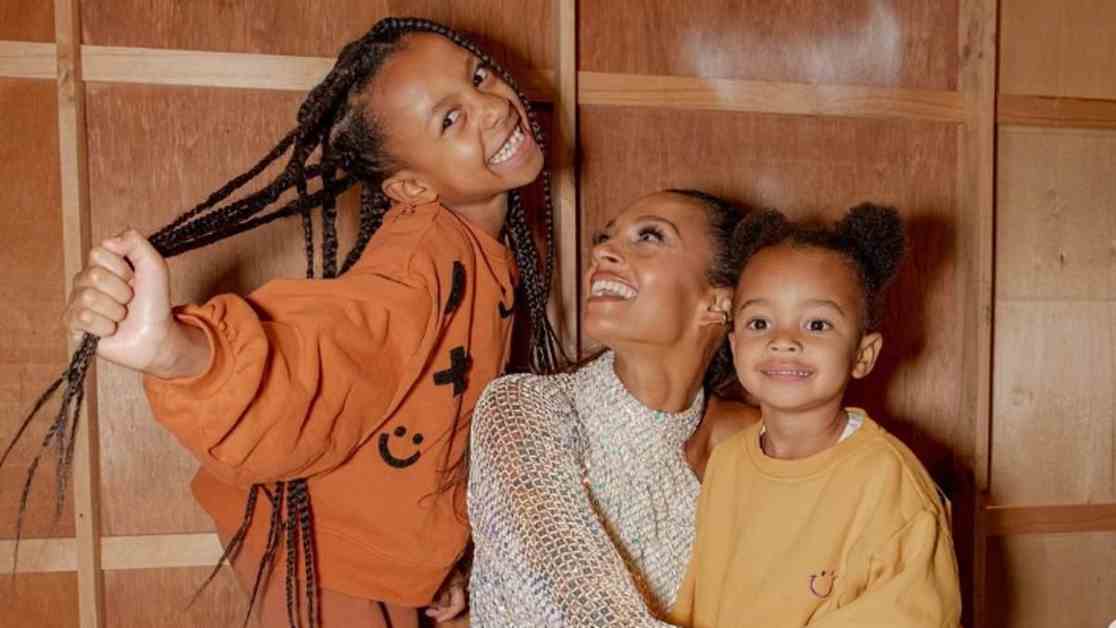Alesha Dixon’s Refusal: Why She Won’t Let Her Daughter Appear on BGT
Alesha Dixon recently made headlines when she revealed that she refused her daughter’s wish to dance alongside her during her Britain’s Got Talent performance. The show judge, 45, explained that she wants to protect her children, Azura, 10, and Anaya, four, from the industry until they are ’emotionally intelligent enough’.
In an interview with The Times, Alesha shared that she wants to set an example for her daughters and told Azura that she could not perform with her parents during the live show where she sang her new song Ransom. Despite Azura’s father, Azuka Ononye, being one of Alesha’s dancers, she felt that the timing was not right for her eldest daughter to join her on stage.
Alesha emphasized that she can’t control people’s perceptions, but she can focus on being a mother, performer, and businesswoman. She mentioned that until she feels her daughter is emotionally ready to handle the industry’s challenges, the answer will be no to appearing on stage.
Celebrity children like Beyonce’s Blue Ivy and Kanye West’s North have already made a name for themselves by performing with their parents. Blue Ivy, for instance, has gained popularity and a growing fan base by joining her mother on stage during live performances.
Similarly, North West, Kanye West’s and Kim Kardashian’s eldest daughter, has also been in the spotlight due to her parents’ successful careers. North has appeared in her father’s music video and joined him on stage to rap, showcasing her talents at a young age.
However, despite their talents, some children, like North, have faced backlash for their public performances. North received criticism for her rendition of Simba in The Lion King during a live concert production at the Hollywood Bowl. Some social media users accused her of benefiting from nepotism and questioned her qualifications for the role.
While celebrity children continue to showcase their talents in the entertainment industry, the debate around nepotism and talent remains a topic of discussion among critics and fans alike. As parents navigate the challenges of raising children in the spotlight, the decision to allow them to participate in public performances remains a complex issue.




















